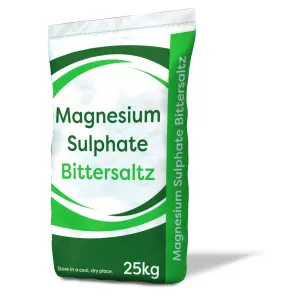What Does Sulphur Do?
Sulphur is often overlooked and not considered an important nutrient; however this is wrong as without a sufficient amount of Sulphur, plants cannot use other nutrients. Plant metabolism transforms sulphate and sulphur dioxide into forms that can then be used by the plant to build organic molecules. Sulphur is mainly used in the creation of plant proteins and certain plant hormones.
Symptoms of Sulphur Deficiency:
The symptoms of Sulphur deficiency largely resemble that of Nitrogen as they are associated with similar plant functions. The plant’s growth will be stunted, and interveinal chlorosis will become prominent, resulting in yellow leaves. The leaf stems may also develop a purple colouration. As sulphur is moderately mobile within the plant, symptoms will usually show first on the younger leaves, and then gradually work their way up to the older leaves.
Control:
We recommend adding sulphur in an inorganic form to correct a deficiency. The best way to do this is to use a fertiliser containing sulphur and magnesium, for example Epsotop Bittersaltz magnesium sulphate.
We recommend using a soluble fertiliser containing both magnesium and sulphur, such as Epsotop Bittersaltz.
For more information on correcting a Sulphur deficiency, please get in touch with our sales team on 01522 246491.




